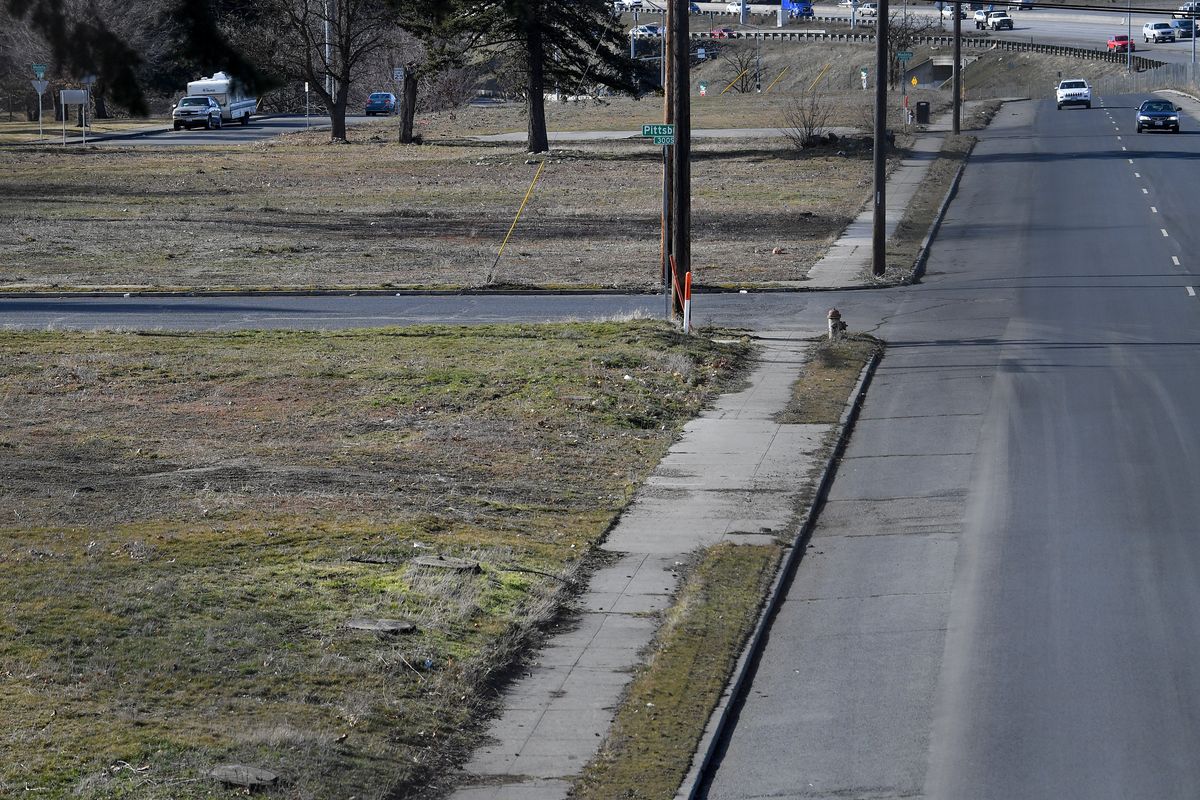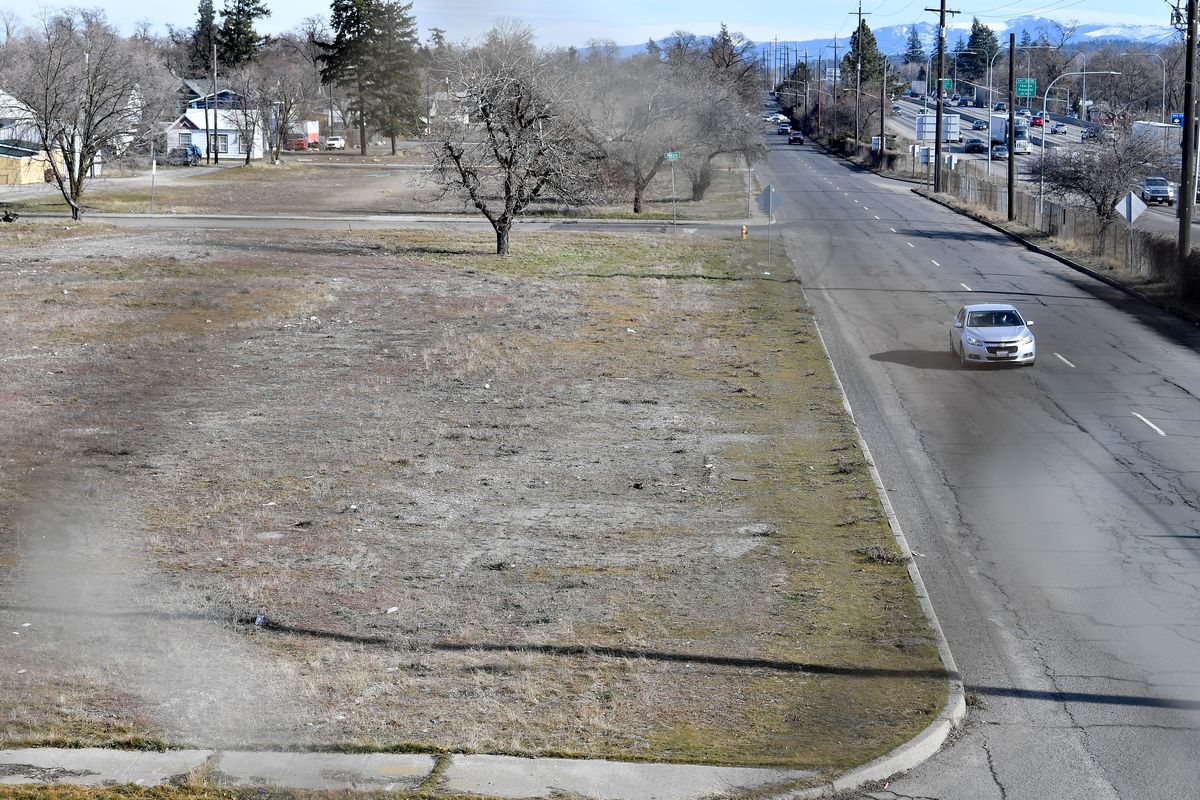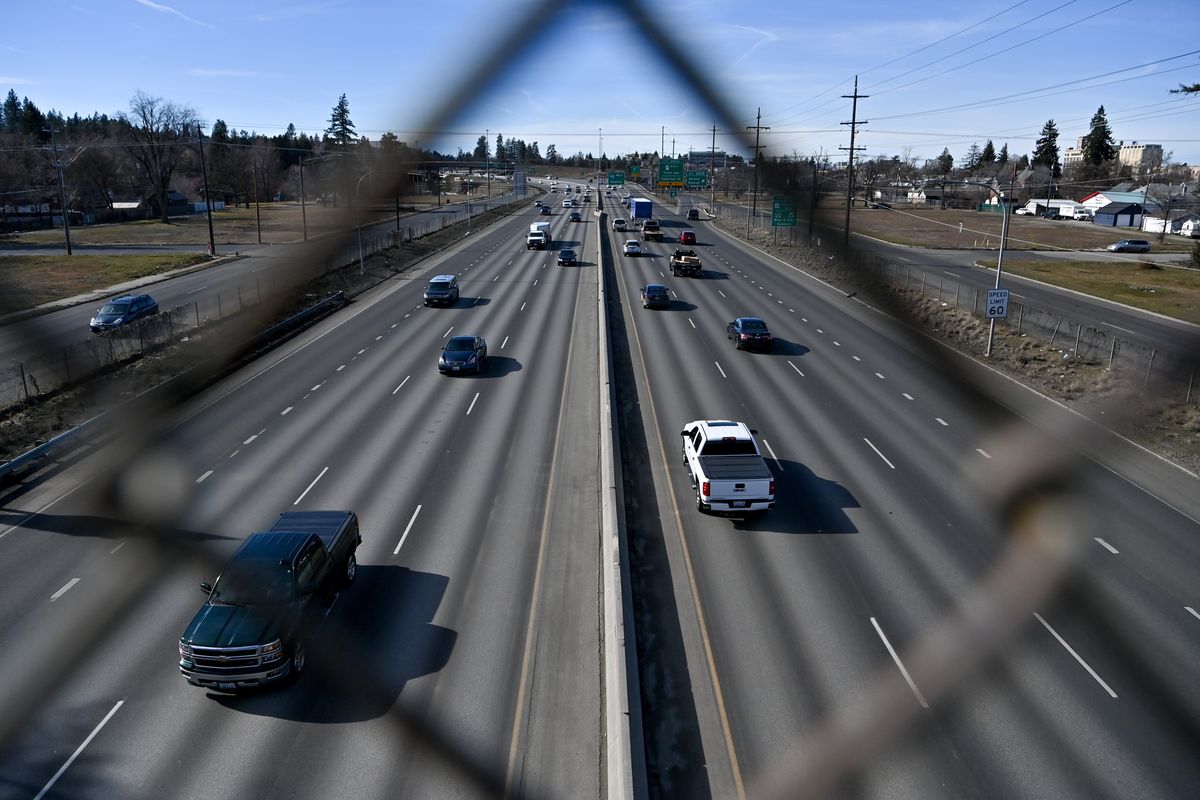Getting There: Proposals to ‘undo the historical damage’ in East Central by reconnecting neighborhood move through Legislature
Empty lots flanking Interstate 90 are photographed as traffic passes through the East Central neighborhood on Friday in Spokane. (Tyler Tjomsland/The Spokesman-Review)Buy a print of this photo
OLYMPIA – When construction began on Interstate 90 in the late 1950s, hundreds of homes were demolished to make way for the highway.
The East Central neighborhood, home mostly to immigrant and Black residents, was split in half. And as the North Spokane Corridor makes its way through the city, a number of other homes and businesses have been removed.
Now, years later, much of that land – still owned by the Department of Transportation – sits unoccupied.
A bill making its way through the Legislature would require the department to lease that land back to the community, which could use it for affordable housing, new businesses or parks. Another proposal would build a pedestrian land bridge over I-90 near Liberty Park as a way to reconnect the neighborhood.
Both proposals could begin to right the wrongs of the past, supporters say.
“This will be transformative and a once-in-a-lifetime opportunity,” Spokane City Councilwoman Betsy Wilkerson said at a Senate transportation committee hearing.
Wilkerson has seen the effects of the highway firsthand, having grown up in East Central in the 1960s. The highway still poses a “significant barrier to connectivity” between the neighborhoods on either side of the highway, she said.
“With a long history of housing discrimination and racial and economic inequality, we have witnessed long-lasting impacts to our community twice,” she said.
The bill, sponsored by Spokane Democrat Sen. Andy Billig, passed the Senate unanimously last week. It now makes its way through the state House of Representatives.
If passed, the Department of Transportation could establish a project to allow property purchased as part of I-90 and North Spokane Corridor construction be leased to the community or the Department of Commerce.
The details of the lease of the land, including the price, which Billig said could be below market value, will be worked out if the bill becomes law.
The money paid to lease the land must be deposited into the state motor vehicle fund to be used solely within the I-90 corridor and the North Spokane Corridor project, according to the bill. Land affected could be in either Spokane or Spokane Valley.
Sen. Mike Padden, R-Spokane Valley, said a number of land parcels in Spokane Valley also were affected by the construction.
“There easily could be some positive benefit, not only for the city of Spokane but for the city of Spokane Valley,” Padden said when voting for the bill.
According to the bill, that land should be used for housing and ancillary improvements, parks, community revitalization projects, trails, public plazas and other projects that provide economic development for the neighborhood.
Ultimately, what happens on the land will be up to the community, Billig told The Spokesman-Review. The bill just provides a mechanism to make it easier and less expensive for the community to repurpose the land, he said.
Sandy Williams, executive director of the Carl Maxey Center, said the land could help the city address a critical need for affordable housing as well as create a pathway to home ownership in the neighborhood. It also could help the community “rebuild a thriving business ecosystem” and create new green space and parks .
Williams said the bill would be important to “undo the historical damage” that was done in the East Central neighborhood.
Another proposal in the Democrats’ transportation package would provide $4 million to design a land bridge over I-90 at Liberty Park as a way to reconnect the communities on either side.
The funding included in the package is just for the design, but Billig said the transportation budget likely will include a line that would require any savings from the North Spokane Corridor construction go toward building the land bridge.
The new bridge would be a wide span of green space with a gentle grade that could help extend some of the park, which had 26 of its original 28 acres taken for I-90 construction.
Many residents of the East Central neighborhood spoke in favor of the bill at a Senate transportation committee.
Lili Navarrete, director of public affairs for Raiz of Planned Parenthood of Greater Washington, said she walks by empty lots every day where hundreds of homes, including her childhood home, were demolished.
Michelle McDonald owns a home on East Fourth Avenue, across from a field of homes demolished for the North Spokane Corridor.
“I went from having neighbors to looking at a brown field, and it has been that way ever since,” she said.
Williams said allowing the land to be leased would be a good addition to the positive work being done in the East Central neighborhood right now.
“There’s a hopefulness in the neighborhood that I haven’t experienced there for a really long time,” Williams said.
These projects will help propel other initiatives being done in the East Central neighborhood, Billig said.
“These are really two pieces to a larger strategy of helping to heal and boost a neighborhood that has been severely impacted by transportation projects,” Billig said.
The proposal to allow leasing of Department of Transportation land has a public hearing in the House on Friday. This year’s legislative session is scheduled to end March 10.


